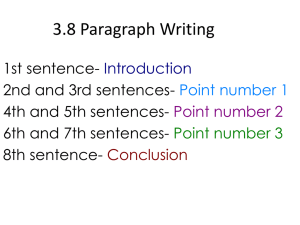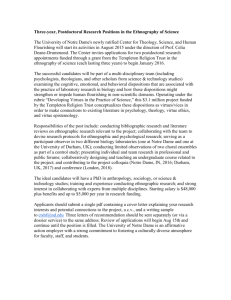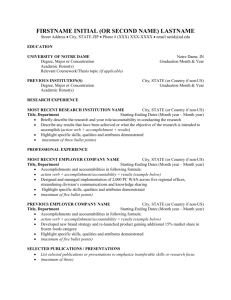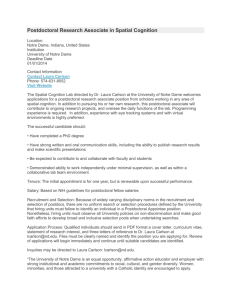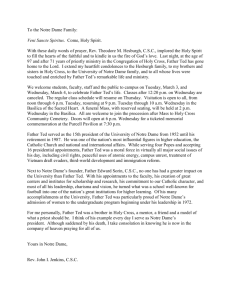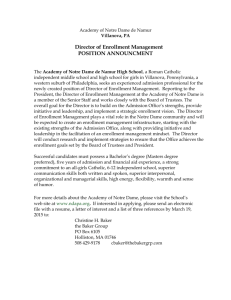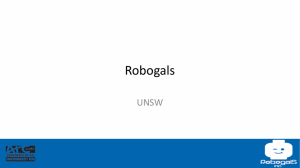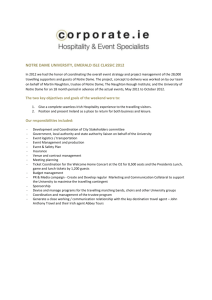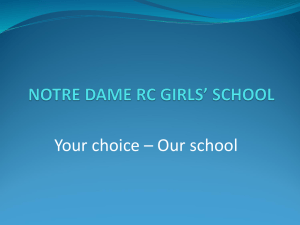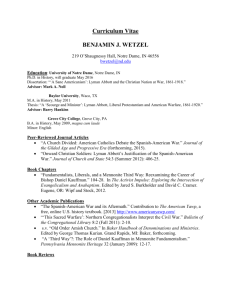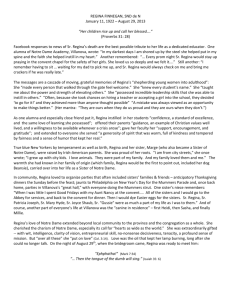Notre Dame RC School: good practice example
advertisement
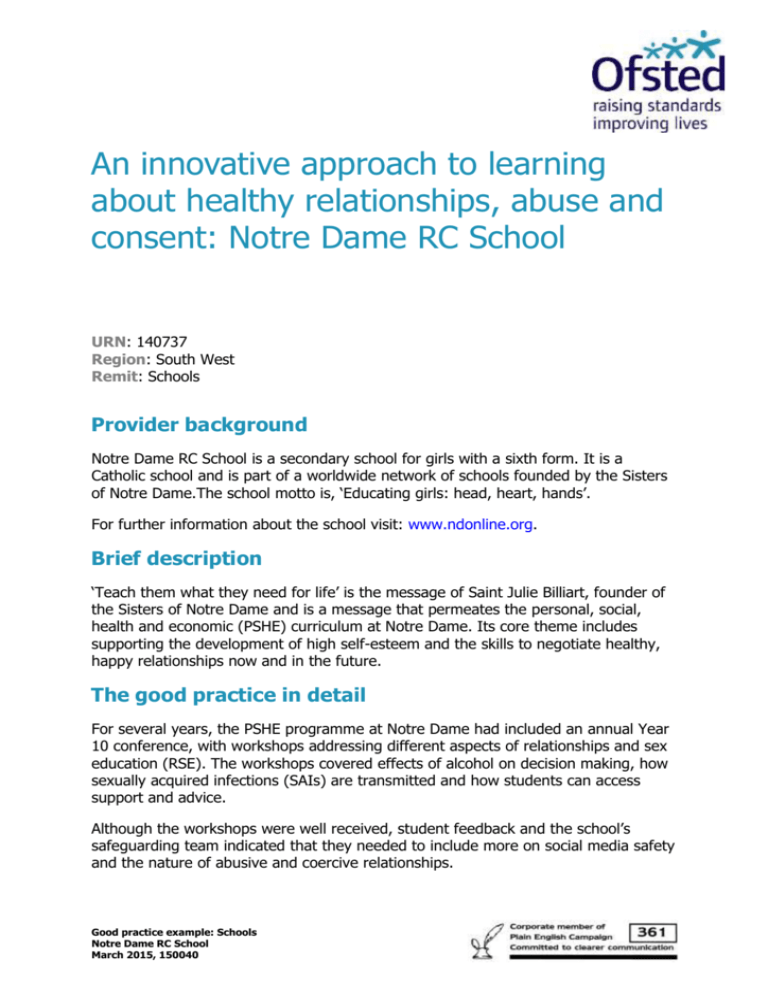
An innovative approach to learning about healthy relationships, abuse and consent: Notre Dame RC School URN: 140737 Region: South West Remit: Schools Provider background Notre Dame RC School is a secondary school for girls with a sixth form. It is a Catholic school and is part of a worldwide network of schools founded by the Sisters of Notre Dame.The school motto is, ‘Educating girls: head, heart, hands’. For further information about the school visit: www.ndonline.org. Brief description ‘Teach them what they need for life’ is the message of Saint Julie Billiart, founder of the Sisters of Notre Dame and is a message that permeates the personal, social, health and economic (PSHE) curriculum at Notre Dame. Its core theme includes supporting the development of high self-esteem and the skills to negotiate healthy, happy relationships now and in the future. The good practice in detail For several years, the PSHE programme at Notre Dame had included an annual Year 10 conference, with workshops addressing different aspects of relationships and sex education (RSE). The workshops covered effects of alcohol on decision making, how sexually acquired infections (SAIs) are transmitted and how students can access support and advice. Although the workshops were well received, student feedback and the school’s safeguarding team indicated that they needed to include more on social media safety and the nature of abusive and coercive relationships. Good practice example: Schools Notre Dame RC School March 2015, 150040 An innovative approach To address the issues raised in the feedback, discussions were held with members of the sixth form study group who had attended the conference when they were younger. Before attending the planning meeting, the sixth form girls met with Year 10 students to ascertain their needs. After the meeting, the following externally led workshops had been decided on: Drunk in charge of my body Social and media safety Coersive and abusive relationships SAIs and contraception What I want from my relationships The sixth form students agreed to plan and lead the workshop on ‘What I want from my relationships’ (with planning support from the local authority leadership associate for health). The session was thoughtfully planned to help students feel comfortable responding to and asking questions. It included statistical information, videos, animations and well-stuctured groupwork. The content included: recognising the warning signs of when a relationship is becoming coercive understanding people’s human rights and legal protections being assertive how to end a difficult relationship safely who to turn to for advice and support. Sixth form students leading the workshop on healthy relationships 2 Good practice example: Schools Notre Dame RC School March 2015, 150040 Student feedback on the workshops Students particularly enjoyed the workshop led by the sixth formers because they felt comfortable talking to other young people. They also suggested that they themselves could run workshops for even younger students. The evaluation sheets included comments such as: ‘It wasn’t awkward to ask questions.’ ‘Everyone liked how the sixth formers taught us because we felt more comfortable with people nearer our own age.’ ‘We learned where to get advice.’ ‘The workshops really helped prepare us for our futures.’ Students recommended that the school should continue using the sixth form students to lead workshops and to consider the following: having a relationships and sex education conference for every year group allowing Year 10 girls to lead workshops on friendships and developing relationships for Year 8 a drop-in session once a week, after school, to continue to discuss some of the issues raised in the workshops Good practice example: Schools Notre Dame RC School March 2015, 150040 3 whether or not teachers from the school should attend the workshops as this sometimes stifled open and honest discussion and prevented students from asking the questions that they wanted to ask. The school is considering these recommendations for future conferences. The good practice case studies that Ofsted publishes highlight specific examples of practice that providers of education, learning and children’s services have used to achieve successful outcomes. For education, the case studies do not recommend a single particular approach to teaching and learning. Ofsted has no preferred lesson structure or teaching style. We showcase and share a wide range of approaches that providers have found work well for them in achieving good outcomes for children, young people and learners. Are you thinking of putting these ideas into practice; or already doing something similar that could help other providers; or just interested? We'd welcome your views and ideas. Complete our survey here. Click here to see other good practice examples. If you would like a copy of this document in a different format, such as large print or Braille, please telephone 0300 123 1231, or email enquiries@ofsted.gov.uk. 4 Good practice example: Schools Notre Dame RC School March 2015, 150040
